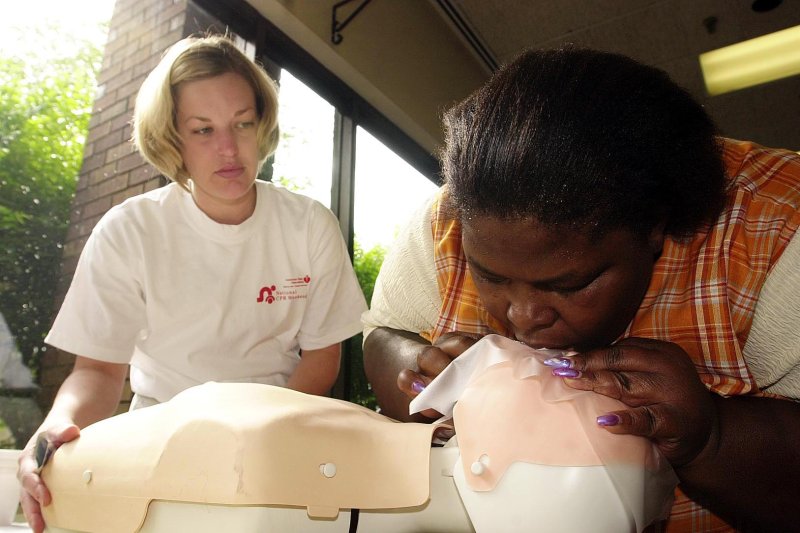A new study has found that bystander-performed CPR significantly increases the chance of favorable neurological outcomes in drowning victims. File Photo by Bill Greenblatt/UPI |
License Photo
May 17 (UPI) -- A new study shows that bystanders performing CPR to people who are drowning can not only save lives but also increase the odds of a good recovery.
A new study by the University of Southern California found that a bystander performing CPR immediately after a near drowning can significantly increase the odds of good neurological recovery by preventing coma, brain death and death.
"What we found is that when bystanders begin CPR before emergency personnel arrive, the person has a higher chance of leaving the hospital and leading a life reasonably close to the one they had before," Dr. Joshua Tobin, associate professor of clinical anesthesiology at USC's Keck School of Medicine, said in a press release.
For the study, researchers analyzed more than 900 children and adults who had experienced cardiac arrest and weren't breathing after being underwater to determine which factors influenced positive or negative outcomes.
A positive neurological outcome was defined as good cerebral performance or moderate cerebral disability at hospital discharge, and an unfavorable neurological outcome was defined as coma or vegetative state, brain death or death.
Researchers found near drowning victims in cardiac arrest were three times more likely to have a favorable neurological outcome if bystanders performed CPR as opposed to waiting for emergency personnel to arrive to begin CPR.
"When we talk about cardiac arrest, there's no doubt that we want people to survive," Tobin said. "But surviving and being in a persistent vegetative state would not be considered a success by most people. That's why we chose to stratify the results by favorable or unfavorable neurological outcomes."
Conversely, researchers found that the use of an automated external defibrillator, or AED, before the arrival of emergency services was associated with worse neurological outcomes.
"It's difficult to say why AED application prior to EMS arrival portended a worse neurological outcome in this study," Tobin said. "Perhaps AED application distracted bystanders from giving good, uninterrupted CPR. What we do know, though, is that this study adds to a growing body of evidence that bystander CPR improves outcomes in cardiac arrest. It also provides a compelling reason for people to learn this life-saving technique."
The study was published in Resuscitation.















